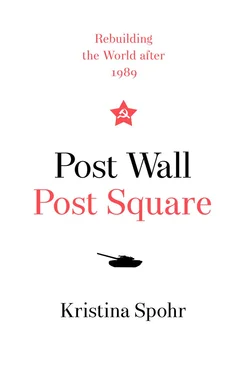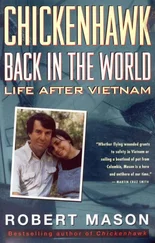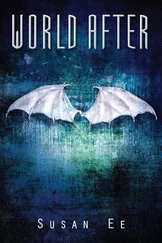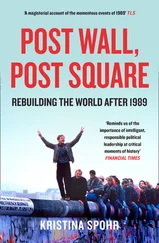His government, Deng added, was determined to put down ‘the counter-revolutionary leaders’ in line with ‘Chinese laws’. And he insisted that ‘China will by no means waver in its resolution’. Otherwise, he asked rhetorically, ‘how can the PRC continue to exist?’ Deng left Scowcroft in no doubt that any interference in China’s internal affairs would not be tolerated and he warned Congress and the US media not to add more fuel to the fire. Indeed, he expected Washington to find a ‘feasible way and method’ to settle their differences regarding the events of Tiananmen. [160]
Scowcroft responded with the studied courtesy that always mattered in America’s relations with China. He spoke at length about the personal bond between Bush and China and his own depth of feeling for the country. He tried to underline the strong US investment in the steady ‘deepening’ of its relations with Beijing since 1972, from which both sides had benefited strategically and economically, as well as on a human level. He also stressed the significance of his visit. ‘Our presence here after a trip of thousands of kilometres, in confidence so as not to imply anything but an attempt to communicate, is symbolic of the importance President Bush places on this relationship and the efforts he is prepared to take to preserve it.’ [161]
Having echoed Deng’s emphasis on the importance of personal friendship, Scowcroft then inserted the irreducible American agenda. ‘It is into this bilateral climate of deepening cooperation and growing sympathy that the events of Tiananmen Square have imposed themselves.’ He explained that the president had to cope with his electorate’s emotional reaction. This was America’s ‘internal affair’ – touching on its people’s fundamental values which Bush in turn shared to a significant degree. In other words, the president stood by his commitment to ‘freedom’ and ‘democracy’ that he had enunciated in his inaugural address. And, by thereby defending America’s stance on human rights, he could not be seen to visit Beijing in person because that would confer a legitimacy on Deng’s regime which the bloodshed in Tiananmen had removed. But, Scowcroft told Deng, Bush wanted to ‘manage events in a way which will assure a healthy relationship over time’. And he was ‘very sensitive to Chinese concerns’. Back-channel diplomacy was therefore the only way to ‘restore, preserve and strengthen’ the bilateral relationship. [162]
Deng did not reply directly. Instead, he emphasised three maxims that drove China. First, ‘I think one must understand history,’ Deng said. China had fought a twenty-two-year war costing 20 million lives – a conflict waged by the Chinese people under the leadership of the Communist Party. Indeed, he told Scowcroft, ‘if one should add the three-year war to assist Korea against US aggression then it would be a twenty-five-year effort’. Second, he underlined the sanctity of China’s independence: a country that would not allow itself to be directed by another nation ‘no matter what kind of difficulties should crop up in our way’. China would follow its own course for development regardless of the ‘macro international climate’. As for the third fundamental: there existed ‘no other force’ except the Chinese Communist Party that could represent China. This had been proved over ‘several decades’. [163]
Scowcroft had a similar discussion with Li. Reflecting later, he sensed a deep rift and a ‘clash of cultures’ [164]which could not at the moment be bridged, but the clandestine trip had served its main purpose: to maintain channels of communication and thus quietly preserve economic ties. Bush noted in his diary, ‘I kept the door open.’ [165]
The Kremlin and the White House therefore reacted cautiously to Tiananmen. But behind the scenes their thinking was now in flux. In different ways Gorbachev and Bush had focused on relations with China in the early months of 1989 – both making high-profile visits to Beijing – but there was little that could be done, at least for the foreseeable future, in view of the Chinese communist leaders’ hard-line response to revolution. [166]In mid-1989 Gorbachev and Bush were both recalibrating their policies.
The Soviet leader, it must be said, was still inclined to look east. Discussing Tiananmen with the Indian prime minister, Rajiv Gandhi, in Moscow on 15 July 1989, Gorbachev brushed aside emotive talk about the death toll, remarking ‘politicians have to be careful in these matters. Especially when we are talking about a country like China. About a country with a population higher than 1 billion people. This is a whole civilisation!’ Looking for positives, he even felt that China’s estrangement amidst world outrage about the ‘Tiananmen massacre’ had a silver lining: Beijing now needed friends and this might give Moscow and New Delhi a real opportunity at a time when Deng had become really fed up with Bush’s procrastination. ‘The Americans want everything to go badly here, or even worse than that. So we need to put hope mainly in ourselves.’ And also, he mused, perhaps in other sympathetic countries undergoing the tribulations of modernisation and development. ‘Yesterday we spoke to the minister of science and technology of the PRC. We talked about cooperation. He is well disposed.’ Gorbachev reminded Gandhi about their previous talks about ‘the triangle’ – a new framework of trilateral cooperation between the Soviet Union, India and China. ‘Perhaps now is the exact moment when they are truly interested in ties with you and with us?’ [167]
Gorbachev’s musings were symptomatic of the uncertainties of the international scene in the confusing summer of 1989. Yet others in his entourage viewed Tiananmen in the light of more immediate challenges in Europe. Vladimir Lukin, the head of Gorbachev’s planning staff, warned that the events of 4 June showed that the PRC leadership was drifting ‘more and more obviously towards the group of socialist countries with traditional ideology’ – meaning East Germany, Cuba, Romania and North Korea – ‘and, at the same time, treats with fear and suspicion those countries which are reforming the administrative-bureaucratic system’ – in other words Poland and Hungary. This, said Lukin, ‘of course is an unpleasant fact but it would be incorrect not to take it into account in our contacts with the Chinese’. Rather than trying to build an overt Asian axis, he advocated a posture of ‘well-wishing reserve’ towards Beijing, devoid of any flamboyant gestures. Such a policy would allow the Soviet Union ‘to pass through the current difficult period without spoiling relations with official Beijing’. And it would have the additional advantage of securing ‘the respect of the most advanced sections of the Chinese people’ who, he predicted, would doubtless play a role during the ‘not so distant period after Deng’ and would support ‘our forward movement in the “Western direction” of our foreign-policy activity’. This was a striking admonition. Lukin not only warned that China had now aligned itself firmly with the rearguard not the vanguard of communist reinvention – though he clearly thought the Deng era was coming to an end – but he also explicitly saw Russia’s future as lying not in Asia but with Europe and the Western world. [168]
Amid all the furore about Tiananmen, it is easy to forget that 4 June was not just a landmark moment for China. That was the day when Solidarity came to power in Poland. So democracy was also on the march in Eastern Europe. Quite literally, indeed, because it was just four weeks earlier that Hungary’s communist government had taken the fateful step of cutting open its barbed-wire border with Austria. That breach offered a loophole to the West, particularly for East Germans who had the right of citizenship in the Federal Republic. At a time when China was walling itself into a new hybrid model – communist-controlled embryonic capitalism – the Iron Curtain was coming apart in Europe. This was a challenge to the Cold War order as a whole – and one that only the two superpowers could address. After pussyfooting around Mikhail Gorbachev for half a year, George H. W. Bush had no choice but to engage.
Читать дальше












